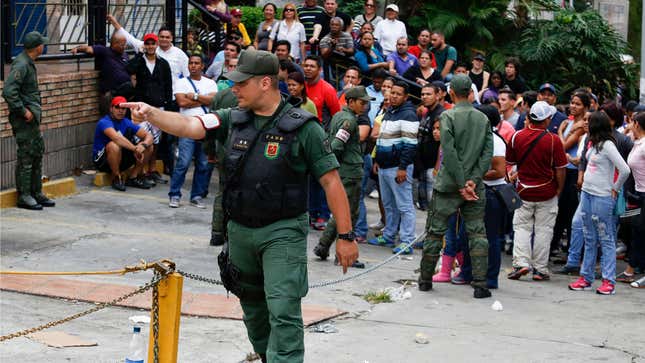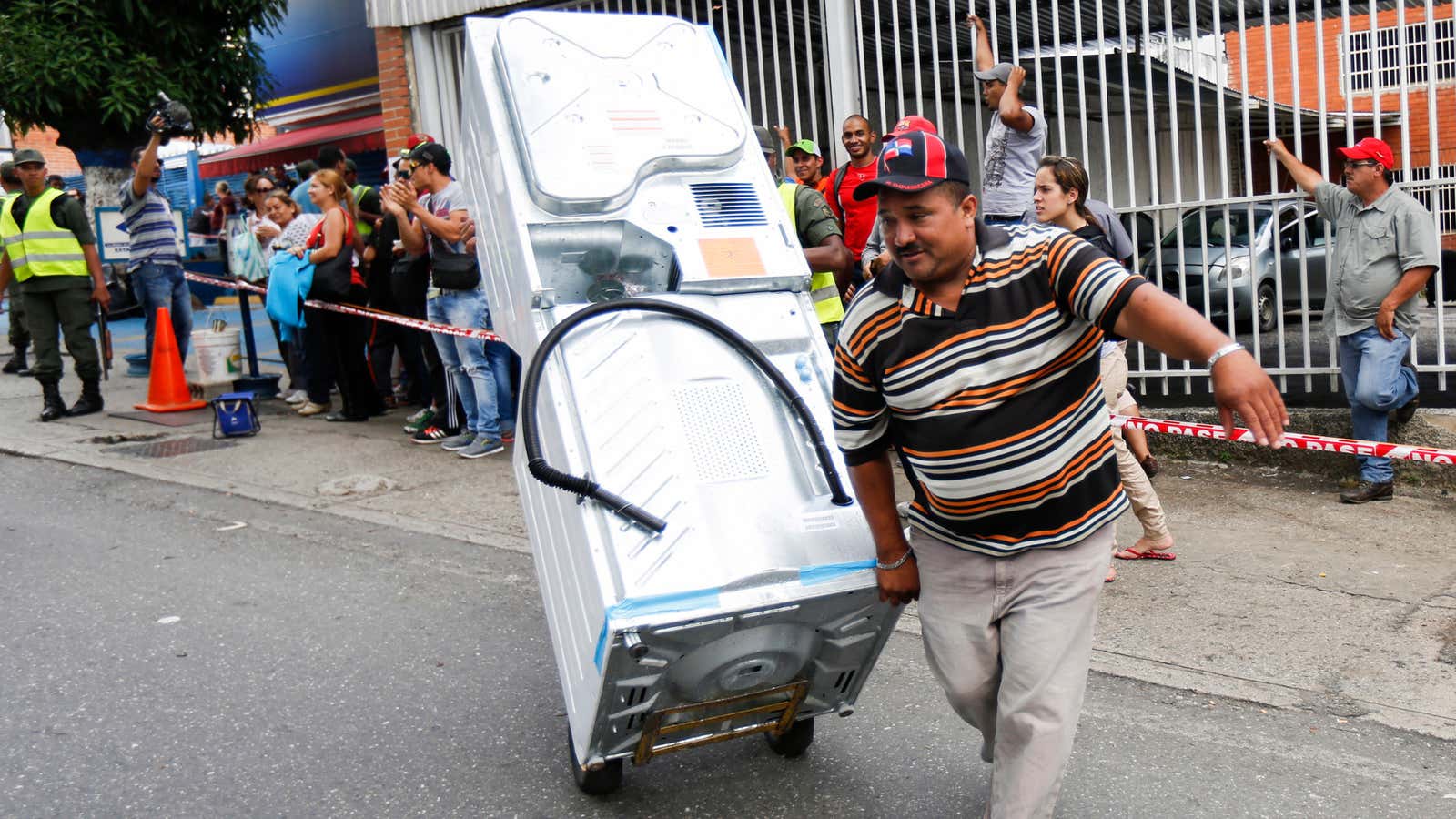President Nicolás Maduro shook up an already shaky Venezuelan economy this weekend as he ordered the “occupation” of the nation’s largest appliance store chain by troops to guarantee “fair” pricing. Maduro said that government inspectors had found electronic goods overpriced by up to 1,000%, claiming repeatedly that the inflation is the fault of greedy store owners and his political opponents.

The chain, Daka, which has five locations in Venezuela and is similar to the US’s Best Buy, had some of its electronics prices forcibly slashed, including those for televisions, washing machines, and refrigerators. The price drops prompted Venezuelans to storm the stores, leading to five arrests at one location. Maduro also ordered the arrest of five store managers from Daka, and its competitors JVG, and Krash electronics stores.
“I have ordered the immediate occupation of this chain to offer its products to the people at fair prices. Everything. Let nothing remain in stock. Enough,” said Maduro.
But that could just lead to another shortage. José Guerra, a local economist and former central bank official, suggested as much on Twitter, saying “Once the stocks run out at Daka and Pablo Electronics, where will people buy a radio or television? Food today, hunger tomorrow.”
Shortages and huge fluctuations in the price of many consumer goods have long been the norm in Venezuela. Over 20 basic goods, including flour, sugar, coffee, and even toilet paper, are currently in short supply, and largely for the same reasons. Price controls, meant to help stem inflation, have instead made it worse by dissuading farmers and manufacturers from producing goods for which they can no longer reap a profit. Without a healthy supply, prices have no where to go but up, and often on the black market. US dollars, which Venezuela’s government restricts access to, are so sought after that locals willingly pay many times the official rate.
Maduro’s move to take over Daka comes on the heels of his recent proclamation that Christmas would come early this year, at least for government workers, who will be paid their bonuses earlier than usual. ”Today, on this first day of November, we decided to declare the arrival of Christmas, because we want happiness for all people,” he said. While the country rallied around the thought, the true impetus, El Universal reports, appears to be to pander to the public in the run-up to municipal elections on Dec. 8.
